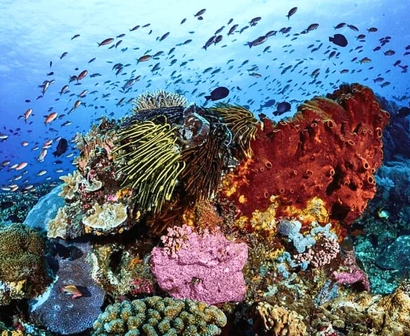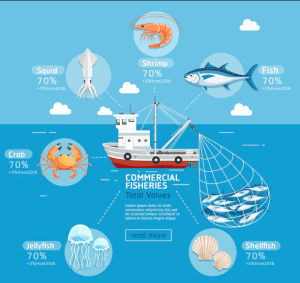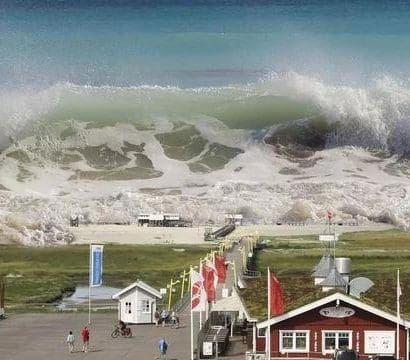
International fisheries regulations may sound like a subject only for scientists or marine lawyers, but the truth is much simpler. These rules affect the fish that reach our tables, the health of our oceans, and the future of the world’s ecosystems. Therefore, understanding them is important even for young readers.
Moreover, learning about these rules doesn’t have to be boring. With a bit of imagination, we can see them as the “ocean rulebook” that keeps the underwater world balanced. To explore how traditional fishing is deeply connected to cultural identity, read more about Rituals and Ceremonies in Indigenous Fishing.
Contents
- What Are International fisheries regulations?🐟
- How International fisheries regulations Work🐟
- Organizations That Create and Monitor the Rules🐟
- Current Problems Affecting International fisheries regulations🐟
- Do These Regulations Actually Work?🐟
- Benefits of Following International fisheries regulations🐟
- What Can We Do to Help?🐟
- Final Reflections on International Fisheries Regulations
What Are International fisheries regulations?🐟
International fisheries regulations are agreements between countries created to protect fish populations and ensure that ocean life remains healthy. Think of them as a giant set of instructions that tell people how, when, and where they can fish.
Additionally, these regulations make sure that no single country takes all the fish, especially because many species swim across borders without passports or limits.
Why Do We Need These Rules?
Imagine a huge pool full of fish where everyone is allowed to fish freely. If one person takes too many fish, the others will find nothing left. And even worse, the fish might disappear entirely.
As a result, these rules help us protect fish today so future generations can enjoy them too.
How International fisheries regulations Work🐟
Since the ocean covers most of our planet and no single country owns all of it, nations must agree on how to protect and share its resources. Because of this, specific tools and strategies have been created to control fishing activities worldwide.
1. Setting Fishing Quotas
Fishing quotas are limits that tell each country or boat how many fish they can catch. These limits prevent overfishing and help fish populations recover.
Furthermore, quotas are adjusted every year based on scientific studies to ensure they remain fair and effective.
Common species with quotas include:
- Tuna
- Cod
- Sardines
- Hake
2. Creating Regulated Fishing Zones
Not all ocean areas are open for fishing. Some regions are protected because fish need safe places to grow and reproduce. These zones act like underwater nurseries.
In addition, certain areas allow fishing only during specific times of the year to avoid disturbing the natural life cycles.
Examples of regulated zones:
- Marine protected areas
- Biological reserves
- Seasonal no-fishing areas
- Migration corridors
3. Allowing Only Certain Fishing Methods
Some fishing techniques are harmful and damage ocean habitats. Therefore, international regulations determine which methods are allowed.
Prohibited methods often include:
- Bottom trawling
- Fishing with explosives
- Using poison
- Capturing species without selectivity
Recommended sustainable methods:
- Hand lines
- Selective nets
- Controlled traps
Organizations That Create and Monitor the Rules🐟
To make sure the rules are fair and followed properly, several international organizations work together. Consequently, they meet every year to review scientific data and update regulations.
Major international organizations:
- FAO – Food and Agriculture Organization of the United Nations
- ICCAT – International Commission for the Conservation of Atlantic Tunas
- NAFO – Northwest Atlantic Fisheries Organization
- IWC – International Whaling Commission
Moreover, these groups rely on scientists, governments, and even local fishing communities to make decisions.
Current Problems Affecting International fisheries regulations🐟
Even though these rules exist, several challenges still threaten the oceans. Thus, international cooperation is more important than ever.
1. Illegal, Unreported, and Unregulated Fishing (IUU)
IUU fishing is like sneaking into a store, taking items without paying, and running away. It harms honest fishermen and damages fish populations.
For this reason, many countries are investing in better monitoring technologies. If you want to understand why protecting marine life is essential, learn more about Coastal ecosystems and their fragility.
2. Lack of Proper Surveillance
The ocean is enormous, making it hard to monitor every fishing boat. Some nations don’t have enough resources to patrol their waters effectively.
Still, thanks to satellites, drones, and digital tracking, surveillance is improving quickly.
3. Climate Change
Warmer waters are causing many fish species to migrate. This movement complicates fishing quotas because fish no longer stay in the same areas as before.
Therefore, new strategies are needed to adapt to these changes.
Do These Regulations Actually Work?🐟
The short answer is yes, although the system is not perfect. When countries follow the rules, fish populations bounce back and marine ecosystems become healthier.
For example, several species once at risk are now recovering thanks to international cooperation.
Notable recoveries include:
- Albacore tuna
- European hake
- Pacific sardine
Hence, the success of these rules proves that global teamwork truly matters.
Benefits of Following International fisheries regulations🐟
When countries commit to these rules, everyone wins — people, oceans, and economies.
Main benefits:
- Protection of important species
- Stable food supplies for the future
- More jobs for fishing communities
- Healthier and more diverse ecosystems
Therefore, respecting these regulations is both a responsibility and an investment in our planet’s future.
What Can We Do to Help?🐟
Even though governments create the rules, every person can make a difference.
For instance:
- Choose seafood certified as sustainable
- Avoid buying fish out of season
- Learn about endangered species
- Support organizations that protect marine life
Above all, sharing knowledge helps more people care about protecting the ocean.
Final Reflections on International Fisheries Regulations
In the end, International fisheries regulations are not just complicated laws; they are powerful tools that ensure the oceans remain full of life. With cooperation, science, and global commitment, we can protect marine resources for generations to come.
In summary, these rules help balance what humans need with what nature needs. And when that balance is respected, the future becomes brighter for everyone — above and below the waves.


